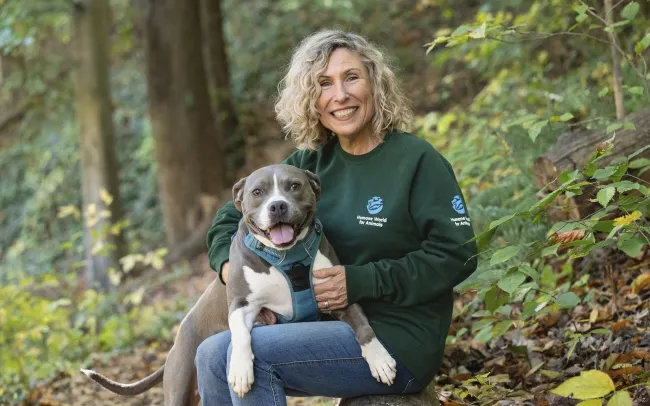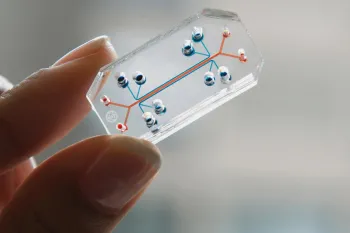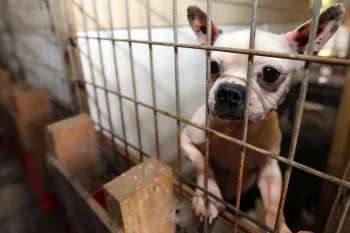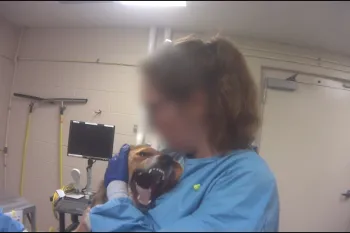Teddy was never meant to have a name. When he was born, he was given only a number, just like the tens of thousands of dogs bred in the United States for use in animal testing and research each year.
Beagles are chosen for testing because of their trusting, docile nature and small size. Teddy was meant to live and die in a laboratory in Michigan, where he and the other dogs in that lab were being force-fed various chemicals and products, like pesticides, fungicides and drugs, in order to get those products approved for sale.
He was never meant to know the love of a family or experience the feeling of grass beneath his paws. But six years ago, Teddy’s life changed.
In 2019, we released an undercover investigation of the testing of various products, including pesticides, on dogs at this laboratory in Michigan. The investigation revealed that Teddy and dozens of other dogs were being force-fed fungicide every day for up to a year to test the substance’s toxicity—known as the one-year toxicity test. The test was controversial; the U.S. and many other countries had already dropped this testing requirement, in part as a result of our prior campaigning. The laboratory was conducting this test because the one-year toxicity test was still required in Brazil.
Thanks to immense public pressure from hundreds of thousands of advocates, the laboratory agreed to end the test and release the beagles who were part of that study to the Michigan Humane Society, to be adopted into permanent, caring homes.
When Teddy was put up for adoption, it took all of eight minutes after his photo was posted online before a couple in Michigan fell in love with him. They immediately knew.
Soon after his adoption, we checked in with Teddy’s family to make sure he was adjusting well to life after the laboratory. They told us that “he is just so happy to be free and has a great capacity for forgiveness and love.”
Not only did Teddy’s life change, but his story also had a real impact on other dogs used in testing and research laboratories.
For one thing, the undercover investigation and campaign that freed Teddy also made an impact overseas; Brazil finalized its policy to end the one-year toxicity test requirement.
Because dogs and cats in the U.S. are protected under the federal Animal Welfare Act, there are regulations that must be followed while dogs like Teddy are in the laboratory—but the law does not offer any protection for those animals once the research project ends, save for requiring that, if they are to be killed, they die by euthanasia. This is the fate of most dogs and cats used in experiments, especially those used in chemical and drug testing.
In 2024, Teddy’s Law, which passed as a bipartisan Michigan state bill in 2023, took effect. The law ensures that dogs and cats used in research facilities are given the chance to be adopted, just as Teddy was. Teddy’s Law has created a pathway for thousands of dogs and cats to find loving homes through the expert evaluation and placement of Michigan’s animal shelters.
Thanks in large part to our advocacy, 17 states across the U.S. have instituted successful adoption laws for dogs, cats (and, in some cases, other animals) used in laboratories. Meanwhile, to address the root cause of animal testing, and the suffering it causes, we continue to push for the large-scale implementation of non-animal testing methods that spare animals and are more relevant to human biology.
When we talk about ending animal cruelty and creating permanent change for animals, this is exactly what we mean. We want to save the animals caught up in cruel systems and also change those very systems to ensure that the future is more compassionate and humane.
Teddy’s life story represents the heart and soul of our mission. And we couldn’t be prouder to have played a part in ensuring his happiness.




